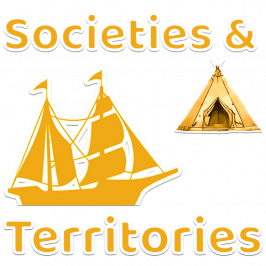The transcontinental railway was essential to the colonizationColonizationColonization occurs when one country takes control of another country, territory, or people. It happens when... of the Prairies. We say transcontinental because the railway crossed the country (and therefore the continent) from east to west, from Montréal to Vancouver. With its connections into the Maritime Provinces, the railway linked the Atlantic to the Pacific. It therefore crossed all of the Prairies. In 1886, the Pacific Express made its first transcontinental trip in just six days.
Why was the railway so important? Before answering this question, remember that in 1905 there weren’t many modes of transportation. AutomobilesAutomobiles - A vehicle that travels on land that has four wheels and carries 3 or... were rare on the Prairies. There were rare in Montréal, too, the largest city in the country. There were still no paved roads: they were more like forest or prairie trails. Of course, there were horses, which were indispensible for getting around in the Prairies, but it wasn’t a very fast form of transportation. Similarly, river traffic was slow and did not go everywhere.
But back to the railway. Can you guess why it made the colonizationColonizationColonization occurs when one country takes control of another country, territory, or people. It happens when... of the Prairies possible? Because it connected distant regions much more quickly. It also allowed a large number of colonists to come and settle in the Prairies. The railway could then transport the farmers’ crops to the eastern provinces and the international market. In turn, the provinces of Ontario and Québec could send products manufactured in their factories to people in the Prairies.
Many secondary railway lines were gradually added to the main railway, which passed through Winnipeg, Regina and Calgary, to reach more northern regions such as Saskatoon and Edmonton. People living near a railway were privileged: they did not have to travel long distances to transport their crops. Others sometimes had to travel several days with teams of oxen or horses.
AuthorAuthor - A person who writes something Auteur - Une personne qui écrit quelque chose: Service national du Récit de l’univers social





